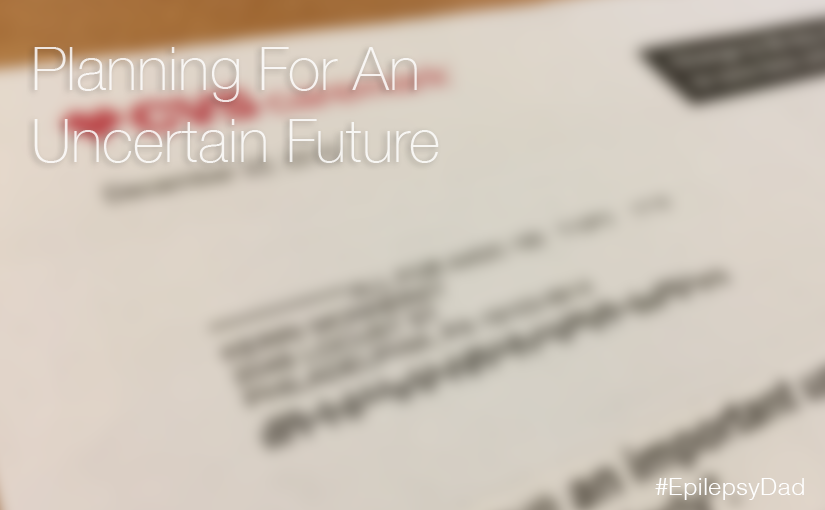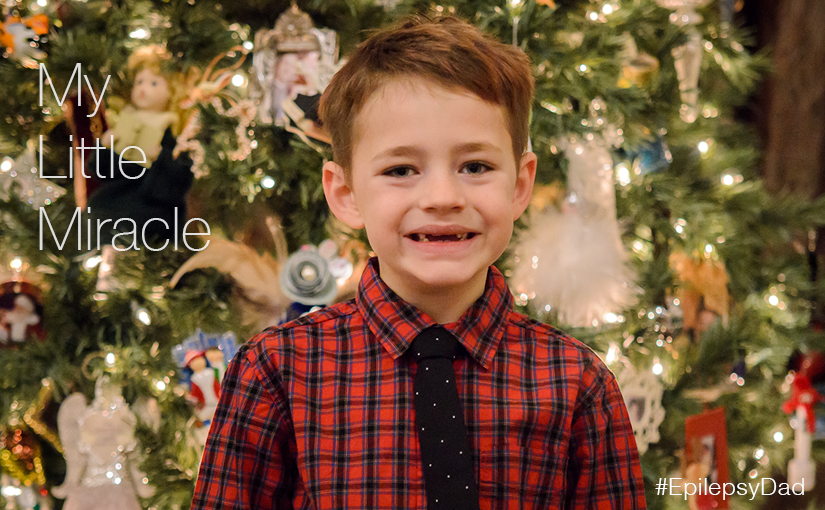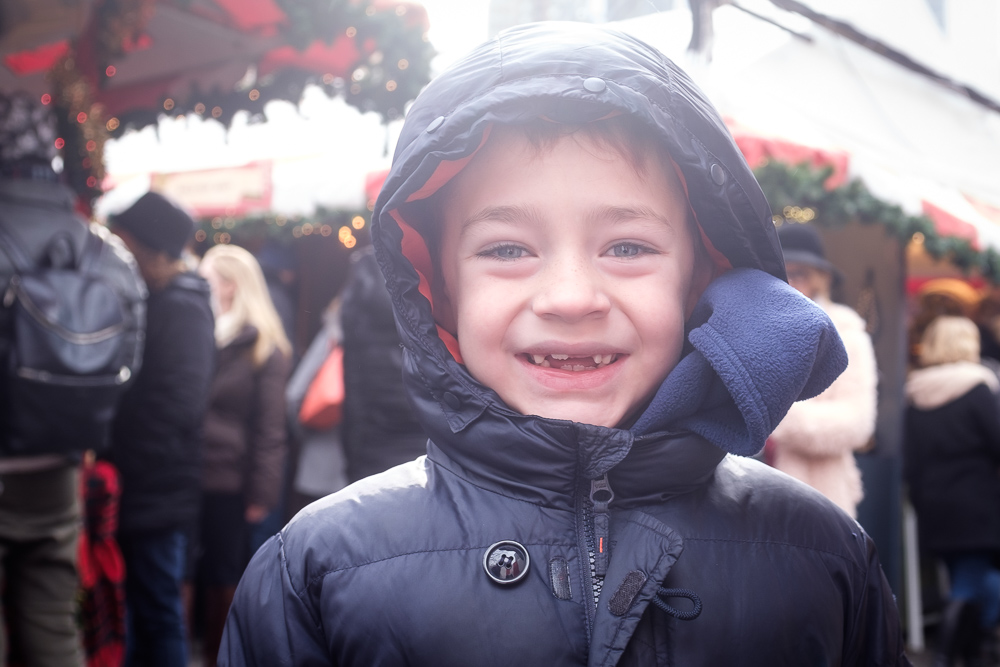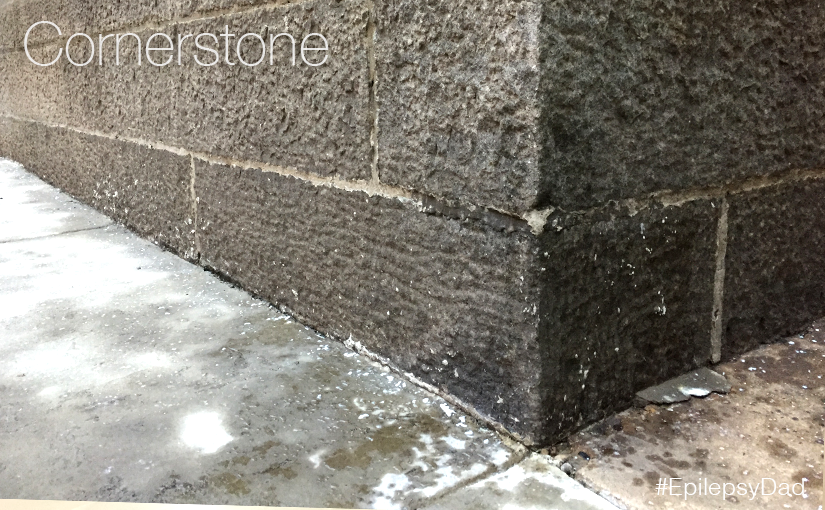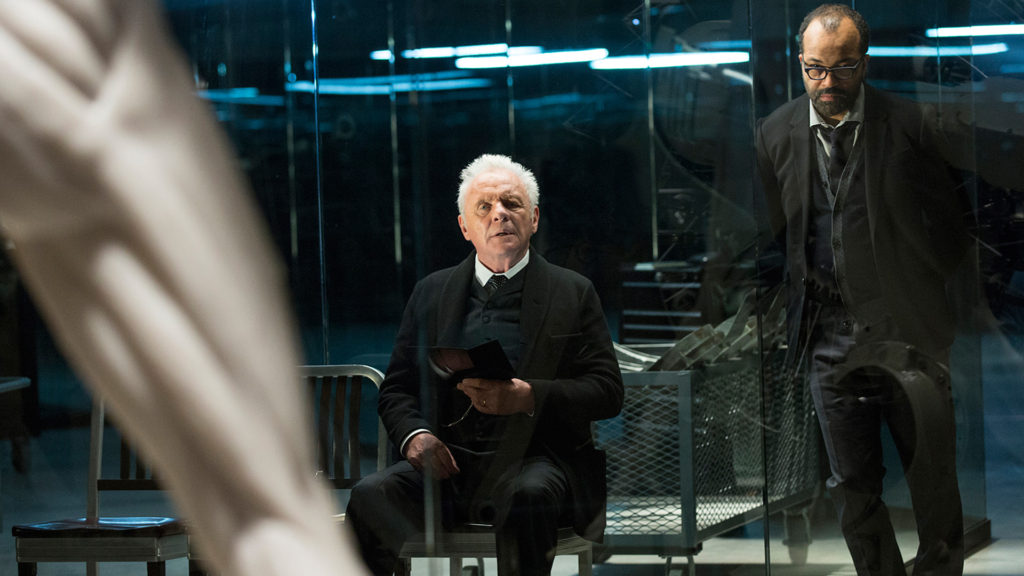I slid my finger up the length of the envelope, tearing it open along the spine. Pushing the sides apart with my thumb and finger, I reached in and pulled out the folded piece of paper. I lifted the top section above the crease to reveal a bold, red logo and the words “To the parents of…” introducing the rest of the text.
The form letter listed one of my son’s prescriptions at the top and used phrases like “convenience and cost-saving” and “long-term prescriptions”. After I finished reading the letter, my eyes retraced their path and scanned the paper, searching for the words that my mind refused to process the first time around: “long-term”.
“Long-term.” I raised my head as I lowered the letter down to my side. “Long-term.” The words echoed in my head. “Long-term.” My mind ran through inflated synonyms. Never-ending. Without end. Constant. Permanent. Forever. My son would be on these medicines for the rest of his life. The letter became impossibly heavy and pulled itself from my fingers. It landed on the floor without a sound.
When my son was two, long before his first seizure, we set up an educational savings account. It’s one of those investment accounts that provides interest-free growth and tax breaks along the way, but the money must be used for college. We’ve been funding the account ever since, even after my son started struggling with memory recall and attention. He still does and, if things get worse or if his condition changes, he may not go to college. I struggle to acknowledge that possibility. I should look at other options that hope for the best but aren’t penalized if things don’t work out, but I feel like I have given into his condition. That his epilepsy would have somehow won and stolen my son’s future.
Looming larger over me is the idea of what would happen to my son if my wife and I passed away or were unable to take care of him. Our parents are at an age where caring for a child isn’t an option. Before he had epilepsy, we had asked friends in Colorado to care for him. But now, I look at how complicated and hard life can be dealing with epilepsy. I imagine the commitment to care for him as a huge burden that I can’t bring myself to ask anyone to bear. I need to write a letter to our friends and ask if they would be willing to care for a beautiful, amazing child that has epilepsy but I can’t. I can’t risk the feeling of rejection, of rejecting my son, if they say “no”. And I can’t face a world where that’s all I hear and where my I feel like I will be leaving my son alone.
Until I do, we’re sitting in this terrible space where nothing is decided and where everything is at risk. Instead of being brave, of doing what needs to be done, I have been frozen. Being responsible feels like an impossible task when it involves admitting to the cruel condition that my son may live with forever. I’m frustrated not only by my inaction but because I know the worst outcome would be for someone else to make the decision for me. It makes me feel like a terrible parent. It makes me feel like I am letting my son down.
It’s hard to figure out how much hope to have, how much reality to let in, or how much to commit to the possibility that there is an equal chance that things get worse as things getting better. It’s not that I thought my son would be cured. It’s not that I didn’t think that he would be on these medicines for the rest of his life. But I also didn’t actively think that he wouldn’t be cured or that he would have to stay on his medicines for anything longer than today. I didn’t open my mind to either possibility. Instead, I kept my head down and tried to live in the present without looking too far into an uncertain future. Reading the letter reminded me that my son’s epilepsy and his medications will exist beyond today, whether I wanted to face the idea or not.
The reality is that these types of things will continue to weigh me down and keep me feeling stuck until I take action to remedy them. The best thing I can do is to acknowledge that the future is uncertain and to take control of the choices in front of me.
Maybe facing the situation will help. Maybe writing about it will spur me to action. Maybe the new year will renew my strength that last year depleted.
I picked the letter off the floor and put it on the desk in the pile of things that I need to do. It’s time to be brave. I pulled out the chair and sat down in front of the computer and started drafting a letter of my own.
“Dear friends,” it began.
